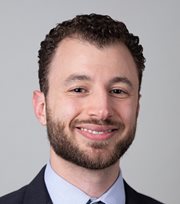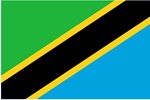Christopher Jowdy

Chris's interest in global health began during his undergraduate studies in Anthropology at the University of North Carolina at Chapel Hill. After graduating, he worked as an EMT in Raleigh and the surrounding areas. What stood out most to him during this time were his more vulnerable patients, who faced significant barriers to healthcare, exacerbated by the pandemic. Since starting medical school, he has volunteered through the local community college and the International Refugee Committee, providing college and ESL tutoring to two refugee families. These experiences, along with those on the hospital wards, made it clear how limited health literacy, limited English proficiency, and other barriers affect people's healthcare. This inspired his passion for health equity and global health, which he will begin to pursue through the Kean Fellowship with a six-week rotation in a rural hospital in Tanzania. Chris plans to apply for psychiatry residency programs with a global health track.

Six-week rotation in the Internal Medicine Ward of Haydom Lutheran Hospital
Haydom Lutheran Hospital
Tanzania
What does the Kean Fellowship mean to you?
I feel profoundly fortunate to have the support to further my learning and pursue my interest in global health. This experience will expose me to tropical medicine, resource-limited medicine, and practicing medicine in a different cultural context, which will contribute to my growth as both a human and a physician. Lastly, I believe it will positively influence the trajectory of my future career.
What do you anticipate learning? My hope for this experience is to gain an understanding of the health needs of a population in a 'developing' tropical country, better comprehend global inequities in healthcare, and foster a broader perspective on medicine. I aim to incorporate global health issues into my future career as a physician. This has been a longstanding goal of mine. During my undergraduate studies, I took many courses on global health issues, such as maternal and child health, migration, malnutrition, and the effects of globalization. These issues are important to me; however, I have had little direct exposure to them. In my upcoming time in Haydom, I am hopeful this will change with involvement in the Internal Medicine Wards, Psychiatric Ward, and the Maternal Health outreach program.
What interests you about tropical medicine and what problems are you interested in solving?
I believe the central reason tropical medicine became important to me was learning the profound impact tropical diseases have on populations outside my country. Additionally, I was attracted to tropical medicine due to the unique solutions required to address these illnesses in settings that are both resource-limited and culturally varied. While my primary interest lies in psychiatry and global mental health, I recognize that mental health is often intertwined with physical health, particularly in regions heavily impacted by tropical diseases. Mental health issues can be exacerbated by the stress of dealing with chronic illness, the social stigma associated with certain diseases, and the limited access to mental health resources. I am particularly interested in addressing these challenges by integrating mental health care into the broader context of tropical medicine. My goal is to develop and implement mental health strategies that are culturally sensitive and sustainable in resource-limited settings, thereby improving overall health outcomes in these communities.